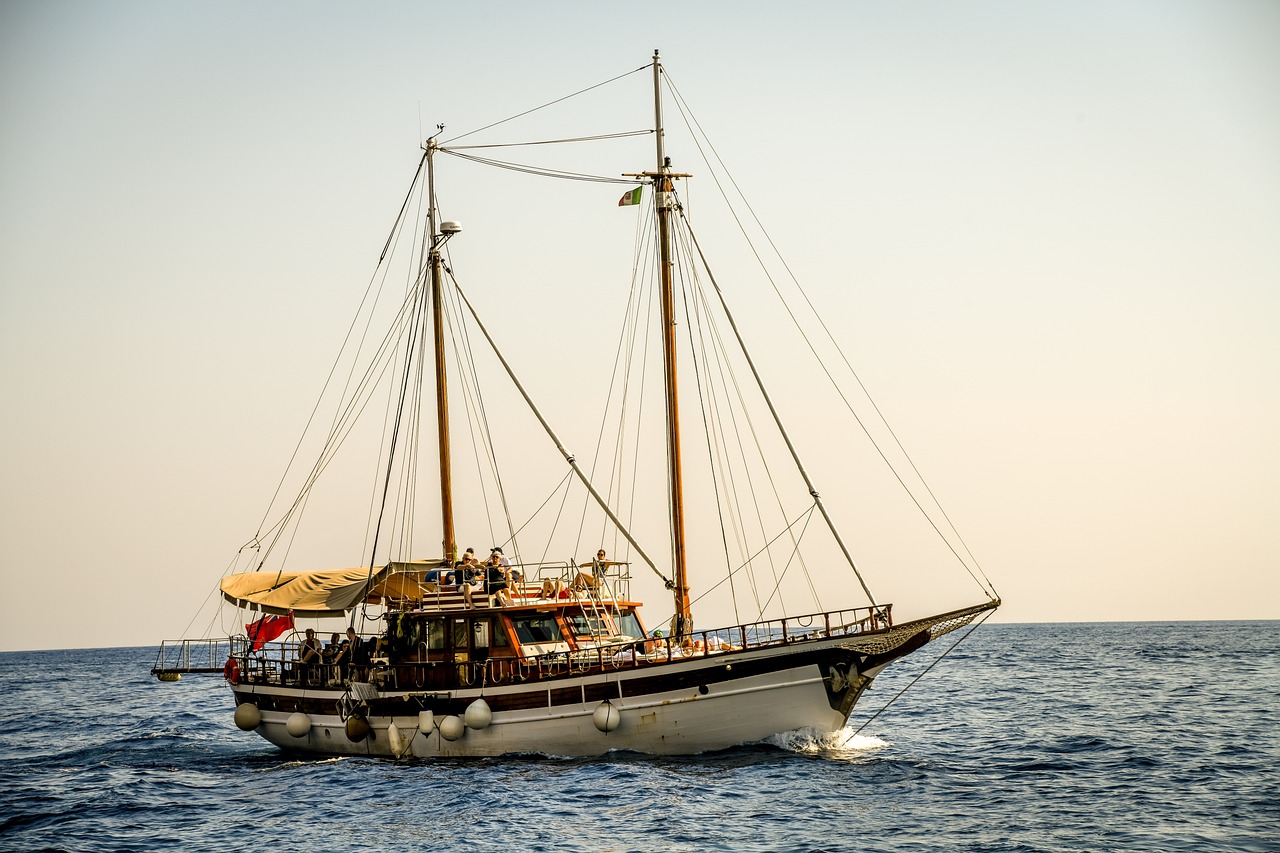Cyprus, a small island nation in the Eastern Mediterranean, has been a hub of diverse cultures and religions through its long and rich history. Its strategic location at the crossroads of Europe, Asia, and Africa has made it a melting pot of different traditions, customs, and identities.
In this article, we will delve deeper into the various aspects of Cyprus, starting with its geography. With a total land area of 9,251 square kilometers, Cyprus is divided into six districts with unique landscapes and personalities. We’ll also explore the island’s complex history, from pre-historic times to the present day, which has been shaped by various powers and civilizations that have left their imprint on the island.
Furthermore, we’ll take a look at the vibrant culture and society of Cyprus, which reflects the country’s multicultural heritage. Blending elements of Greek, Turkish, Armenian, Maronite, and other traditions, Cyprus has fostered a rich and diverse cultural scene. We’ll also examine the island’s dynamic economy that has experienced significant growth, driven by its strategic location, tourism sector, shipping industry, and services sector.
Finally, we’ll discuss Cyprus’s politics and its position in the contemporary world. The country has faced major challenges in the past, including a financial crisis in 2013 and the ongoing issue of political division between the Greek-Cypriot and Turkish-Cypriot communities. We’ll also take a look at Cyprus’s role in the European Union, its relations with neighboring countries, and its stance on major global issues such as climate change and migration.
Geography of Cyprus
Cyprus is a beautiful island nation located in the Eastern Mediterranean region with a unique topography. The island has a total land area of 9,251 square kilometers and is divided into six districts, namely Nicosia, Limassol, Larnaca, Paphos, Famagusta, and Kyrenia. Each district has its characteristics, culture, and natural landscapes.
Cyprus is known for its warm climate, beautiful beaches, and rich cultural heritage. The island has a mountainous interior region, with the Troodos Mountains being the highest point. The mountains are covered with dense forests, and the plains of Cyprus are filled with fertile land, cultivating a variety of crops.
The island is also known for its stunning beaches. With over 649 kilometers of coastline, tourists and locals can enjoy various water-based activities such as swimming, diving, and sailing. The beaches in Cyprus have crystal-clear waters with shades of blue and green, providing a serene atmosphere for relaxation.
In summary, the geography of Cyprus is diverse, unique, and breathtaking, making it an ideal destination for tourists who love both nature and culture.
History of Cyprus
The history of Cyprus dates back to ancient times, with evidence of human habitation dating back to around 10,000 BC. Over the centuries, Cyprus has been ruled by various powers, including the Egyptians, Persians, Greeks, Romans, and Byzantines. In the medieval period, the island was part of the Crusader States, ruled by various European feudal lords and military orders.
During the Ottoman period, Cyprus was part of the Ottoman Empire and experienced significant changes in its demographic, cultural, and economic landscape. In the modern era, Cyprus became a British colony in 1878 and remained so until its independence in 1960. Shortly after its independence, Cyprus became embroiled in a conflict between the Greek-Cypriot and Turkish-Cypriot communities, which ultimately led to a Turkish invasion and the division of the island into the Republic of Cyprus and the Turkish Republic of Northern Cyprus.
Today, Cyprus is a unique blend of cultures and identities, shaped by its complex history and diverse population. Its rich archaeological, historical, and cultural heritage attracts millions of visitors every year, eager to explore the many layers of its history and experience its vibrant contemporary scene.
Culture and Society in Cyprus
Cyprus is a melting pot of cultures, with a vibrant and diverse society that reflects its long and complex history. Greek and Turkish Cypriots are the two main groups that make up the population, although there are also significant Armenian, Maronite, and other ethnic communities. The major religions on the island are Eastern Orthodox Christianity and Sunni Islam, although there are also smaller communities of Maronite Catholics and Armenian Orthodox Christians.
The rich cultural heritage of Cyprus is reflected in its various art forms, including music, dance, literature, and visual arts. Cyprus has a strong tradition of folk music, with instruments such as the tzouras, bouzouki, and violin featuring prominently. The Limassol Carnival is a major cultural event that attracts visitors from around the world, with colorful parades, music, and costumes.
Cyprus is also a multilingual country, with the two official languages being Greek and Turkish. English is widely spoken, especially in the tourism and business sectors. The Cypriot dialect of Greek is a distinctive and colorful form of the language, with influences from both Turkish and Arabic.
- Cyprus has a rich culinary tradition, with dishes such as moussaka, souvlaki, and halloumi cheese reflecting the island’s Mediterranean location and diverse cultural influences.
- The arts and crafts of Cyprus also reflect its multicultural heritage, with traditional crafts such as weaving, pottery, and embroidery still practiced today.
Overall, the culture and society of Cyprus are a unique blend of ancient and modern, local and global, and Eastern and Western influences. This rich tapestry of traditions and customs is a testament to the island’s resilience and adaptability over the centuries.
Economy and Politics of Cyprus
Cyprus has a diverse and growing economy, fueled by its strategic location in the Eastern Mediterranean. The tourism sector is a major contributor to the economy, with millions of visitors attracted to the island’s beaches, ancient ruins, and natural beauty. The shipping industry is another key sector, with the Port of Limassol serving as a major hub for international trade. The services sector, including finance, business, and professional services, has also experienced significant growth in recent years.
However, Cyprus has faced major economic challenges in the past, including a financial crisis in 2013 that required a bailout from the European Union. In addition, the country is divided politically between the Greek-Cypriot and Turkish-Cypriot communities, which has led to ongoing tensions and divisions. The United Nations has been working to reunite the island, but progress has been slow and difficult.
- The tourism sector is a major contributor to Cyprus’ economy
- The shipping industry is a key sector, with Limassol serving as a major hub
- The services sector, including finance and business, has experienced significant growth
- Cyprus faced a financial crisis in 2013
- The country is politically divided between Greek-Cypriot and Turkish-Cypriot communities
Cyprus is also a member of the European Union and has close relations with neighbouring countries in the Eastern Mediterranean region. The country has shown a strong commitment to environmental sustainability and addressing the challenges of climate change. Despite its challenges, Cyprus remains a dynamic and important player in the region and beyond.
Cyprus in the Contemporary World
Cyprus is a nation that has been firmly positioning itself in the contemporary world. As a member of the European Union since 2004, Cyprus has been an active participant in shaping the EU’s policies on various issues. The country has been particularly involved in the areas of energy, environment, and security, advocating for the implementation of sustainable and innovative solutions.
Cyprus also maintains important relations with its neighboring countries, working towards regional cooperation and stability in the Eastern Mediterranean. The country has played a key role in the trilateral partnership with Greece and Israel, developing joint projects in the fields of technology, tourism, and energy. Additionally, Cyprus has sought to bolster its ties with Arab nations, recognizing the strategic importance of the Middle East in today’s global context.
Regarding global challenges, Cyprus has been an active player in the fight against climate change, participating in international conferences and signing agreements to reduce greenhouse gas emissions. The country has also been navigating the complexities of migration, seeking to balance its moral obligations with its capacity to welcome refugees and asylum seekers.
All in all, Cyprus is a nation that is committed to playing a constructive role in the contemporary world, engaging with a wide range of issues and actors in pursuit of a more peaceful, prosperous, and sustainable future.
The Political Divide in Cyprus
Cyprus has been politically divided since 1974 when Turkish forces invaded and occupied the northern part of the island. The Republic of Cyprus, located in the southern part and recognized by the international community as the sole legitimate government, is inhabited by Greek Cypriots, while the northern part is inhabited by Turkish Cypriots, who declared the Turkish Republic of Northern Cyprus (TRNC).
The political divide has been a major issue for decades, with numerous attempts at reunification and peace talks, but with little success. The situation has left Cyprus as a divided country, with a UN-Buffer Zone dividing the two parts of the island. However, in recent years, there have been some positive developments, such as the reopening of checkpoints and the resumption of talks, giving hope that a solution can eventually be reached.
- The UN-sponsored peace talks aim to create a bi-zonal, bi-communal federation with two constituent states, with equal political power.
- The two communities still have some fundamental differences, including property claims, the return of refugees, and the withdrawal of Turkish troops from the north.
- However, both sides recognize the need for a long-lasting solution for the benefit of all Cypriots and the region as a whole.
The political divide in Cyprus remains a complex issue, but with ongoing negotiations and reconciliation efforts, there is hope for a peaceful and united future.
Cyprus and the East-Med Gas Forum
Cyprus has become a major player in the Eastern Mediterranean in recent years due to its potential as an energy hub. The discovery of significant natural gas reserves in waters surrounding the island has led to the formation of the East-Med Gas Forum, a regional organization aimed at exploring the potential benefits of natural gas exploration and exportation. Cyprus has joined this forum to maximize its potential as a gas producer and exporter, contributing to the development of the regional economy and enhancing its strategic position in the East-Med region.
The East-Med Gas Forum also includes other major players in the region such as Greece, Egypt, Israel, and Jordan, representing a significant potential for cooperation and collaboration in the energy sector. Cyprus has been actively engaged in discussions with these countries, exploring opportunities for joint development and exportation of natural gas that could have a positive impact on the regional energy market and the global supply chain. The East-Med Gas Forum has the potential to change the landscape of the Eastern Mediterranean and Cyprus is well positioned to take advantage of this opportunity.
FAQs on Cyprus
Cyprus is a popular tourist destination, and visitors may have questions about the country. Here are some frequently asked questions:
- What are the languages spoken in Cyprus? Greek and Turkish are the two official languages of Cyprus. English is also widely spoken, especially in the tourism and business sectors.
- What is the currency used in Cyprus? The currency used in Cyprus is the Euro.
- Is Cyprus a safe country? Cyprus is generally considered a safe country with low levels of crime and violence. However, visitors should exercise caution when driving, especially during peak tourist seasons.
Whether you are planning a trip to Cyprus or just curious about the country, these FAQs will help you learn more about this fascinating nation at the crossroads of Europe, Asia, and Africa.
What are the languages spoken in Cyprus?
Cyprus is a bilingual country, with Greek and Turkish being the official languages. Greek-Cypriots, who make up the majority of the population, speak Greek, while Turkish-Cypriots speak Turkish. Both languages are used in official contexts, such as government documents, road signs, and public announcements. English is also widely spoken and understood, particularly in the tourism and business sectors. Visitors to Cyprus should have no problem communicating in English, and many restaurants, hotels, and shops have English-speaking staff.
In addition to Greek and Turkish, there are also other languages spoken in Cyprus, such as Armenian, Maronite Arabic, and Cypriot Arabic. These languages reflect the island’s multicultural heritage and are often used by smaller communities and religious groups.
- Greek – Official language
- Turkish – Official language
- English – Widely spoken
- Armenian – Spoken by small communities
- Maronite Arabic – Spoken by Maronite Christians
- Cypriot Arabic – Spoken by some Greek-Cypriots and Turkish-Cypriots
What is the currency used in Cyprus?
For those who are planning to travel to Cyprus, it is important to know the currency used in the country. The official currency used in Cyprus is the Euro. One Euro is equivalent to 100 cents. The Euro is a widely accepted currency in Cyprus, and visitors can easily exchange their currency at banks, exchange offices, and ATMs. It is recommended to carry some cash in Euros for small transactions, while credit and debit cards are widely accepted in shops, restaurants, and hotels.
Is Cyprus a safe country?
Cyprus is a safe country with low levels of crime and violence. However, visitors should always exercise caution when driving and should be aware of potential hazards. During peak tourist seasons, roads can be congested and accidents can occur. It is important to follow traffic rules and be aware of the different driving practices in Cyprus.
For those planning to visit Cyprus, it is recommended to take common-sense precautions such as securing valuables and avoiding carrying large amounts of cash. In general, Cyprus is a welcoming and hospitable country, but travelers should always be aware of their surroundings and take steps to ensure their safety.
- Secure your valuables and avoid carrying large amounts of cash.
- Follow traffic rules and be aware of the different driving practices in Cyprus.
- Take common-sense precautions and be aware of your surroundings.
Conclusion
After exploring the geography, history, culture, economy, and politics of Cyprus, it’s clear that this small island nation is a treasure trove of diversity and dynamism. From its stunning beaches to its complex political landscape, Cyprus has something for everyone.
Cyprus’ strategic location at the crossroads of Europe, Asia, and Africa is one of its greatest strengths, enabling it to play a key role in the Eastern Mediterranean region and beyond. Its growing economy, diverse cultural heritage, and vibrant society are also testament to its potential and promise.
Whether you’re interested in learning about the island’s rich history, sampling its delicious cuisine, or exploring its natural beauty, Cyprus offers something for everyone. So if you’re looking for a destination that combines excitement, exploration, and education, look no further than Cyprus.






